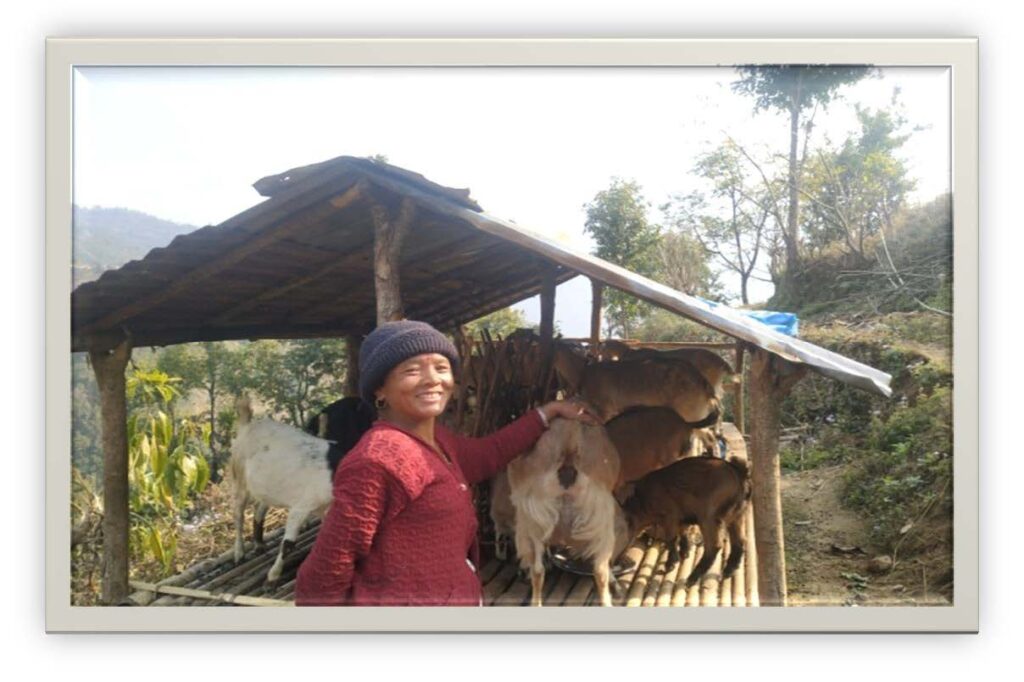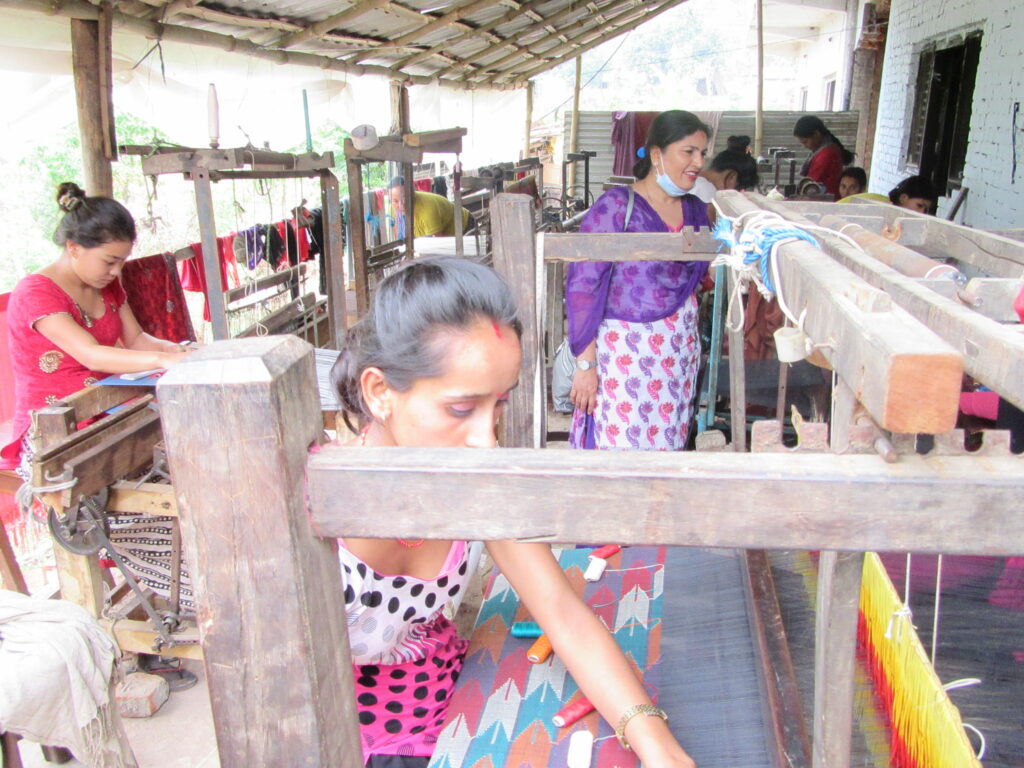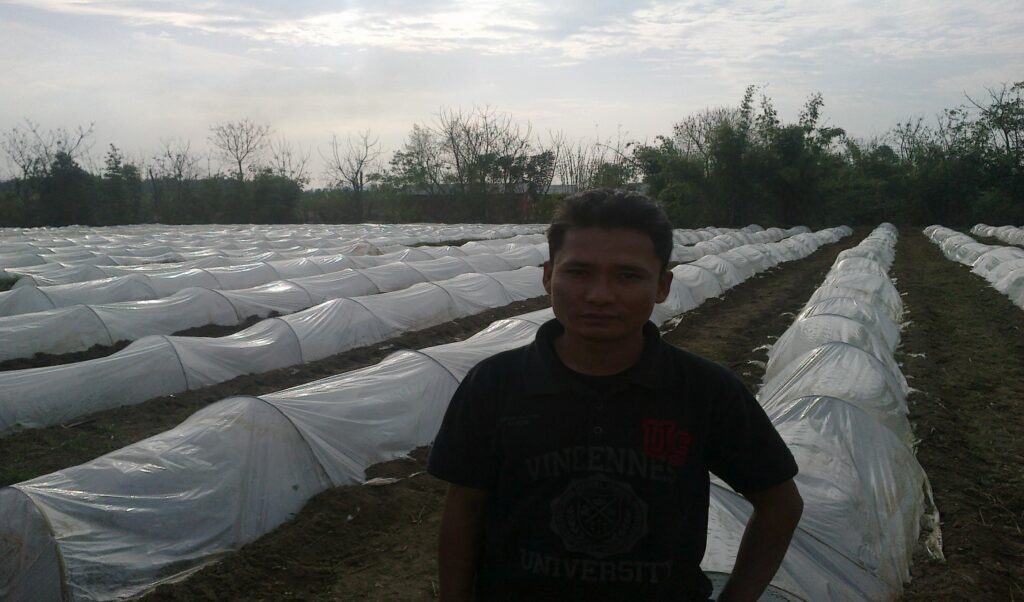Assignment Name: | Improving Resilience Through Livelihood Improvement | |
Country: | Nepal | |
Location Within Country: | Pratappur, Kudiya, Narsahi, Paklihawa and Triveni-Susta VDC in Nawalparasi District | |
Professional Staff Provided by Your Consultant/Entity (Profile): | 5-Professional Staff (Manoj Koirala-Project Coordinator, Deepak Regmi-Monitoring and Evaluation Officer, Krishna Sapkota-Finance Assistant, Sisupal Koire-Social Mobilizer, Hari Tiwari- Agri-Technician) | |
Name of Client: | Lutheran World Relief | |
Address: | Kathmandu, Nepal | |
Number of Staff Months: | 116 Months | |
Duration of Assignment: | Start Date (Month/Year): November, 2014 | Completion Date (Month/Year): September, 2016 |
Approx. Value of Services Proposal: | National Level: Nrs 13,400,000.00 International Level: US$ | |
Name of Associated Consultant, If Any: | Not Applicable | |
No. of Staff Provided by Associated: | Not Applicable | |
Value of Services: | NPR 13,400,000.00 | |
Source of Financing: | Lutheran World Relief | |
Name of Senior Staff and Designation (Project Director/Team Leader/Coordinator etc) involved and Function Performed: Name: Mr. Manoj Koirala, Designation: Project Coordinator Performed Function: Activity and resource planning, Organizing and motivating a project team, Controlling time management, Cost estimating and developing the budget, Ensuring client and beneficiaries’ satisfaction, Analyzing and managing project risk, Monitoring progress, Managing reports and necessary documentation of project. | ||
Narrative Description of the Project: The goal of the project was improving the livelihood of flood vulnerable smallholder farmers in the face of changing climate through livelihood improvement program. The project was implemented in 5 VDCs viz. Pratappur, Kudiya, Narsahi, Paklihawa and Triveni-Susta with the financial support from Lutheran World Relief (LWR). Total of 920 farming households from 41 farmers groups of flood vulnerable area were the direct project beneficiaries. | ||
Description of the Actual Services Provided by Your Staff: 1. Training on climate smart agriculture and climate change vulnerability: Eight events of 3 days training on climate smart agriculture and climate change vulnerability (CSA) were conducted in the program VDCs and selected farmers from different groups had participated. The training was focused on global effects of climate change, its impact on Nepal and strategies for mitigation, and adaptation. Farmers were trained on climate smart agriculture technologies including conservation of genetic resources, conservation agriculture, mulching, System of Rice Intensification (SRI), integrated watershed management, organic agriculture and integrated pest management. 2. Training on water efficient technology and promotion of river bank farming: Ten events of 2 days training on water efficient technology and promotion of river bed farming were conducted in 5 working VDCs. Trainings were focused on soil improvement practices, water saving technologies, cultivation practices of seasonal vegetables including water requirement, importance of river bed farming, cultivation practices for cucurbits and other crops in riverbed farming. 3. Training of Local Resource person (LRP) on Climate Smart Agriculture: A total of 11 participants were participated in 15 days long training which was held in Bharatpur, Chitwan. The objective of the training was to train local cadre in climate smart agriculture so they will provide technical support to the farmers in their respective VDCs. 4. Provision of selected crops, vegetables and fruit species to farmers groups: Farmers’ groups are provided with seasonal and off-seasonal vegetables, major cereals, lentil and banana. For riverbed farmer’s groups, cucumber (Namdhari, Long green), bitter gourd (Pali, Namdhari, Jhalari), bottle gourd (Gutkha, F1 Hybrid), sponge gourd, water melon (Sugar baby, Namdhari) and pumpkin (OP, Hybrid) were supported. The farmers also supported with vermi-compost and chemical fertilizers. Banana suckers were provided to 8 groups involving in banana production. William hybrid, Malbhog and G-9 (tissue culture seedlings and suckers) varieties were distributed to 130 farmers. 5. Initiate demonstration plots for wider dissemination of IPM/INM production technologies in fruits and vegetables: Eight demonstration plots for wider dissemination of integrated pest management (IPM) and integrated nutrient management (INM) technologies have been conducted in the farmer’s fields. These demonstration plots were used for dissemination of summer season vegetable production technologies. The plots were established in 8 different groups, one plot in each group where demonstration of tomato, cauliflower, okra and cowpea was performed. Similarly, two demonstrations of paddy using SRI (System of Rice Intensification) technology have been established for dissemination of SRI technology. 6. Training on postharvest technology: Selected farmers from different groups participated in the post harvest training. Training was found successful and more effective because it was conducted at the harvesting season of vegetable production. Participating farmers were able to harvest their crops by giving minimum injury to the fruit. 7. Supply agri. inputs (seeds, fertilizers, pesticides etc.): A total of 526 farmers from 29 vegetable groups were provided with vegetable seeds like okra (var. Arka Anamika, Research), bottle gourd (hybrid), sponge gourd (hybrid), pumpkin (OP and hybrid), bitter gourd (var. Pali, Namdhari), cucumber (var. Namdhari), cowpea (Tane bodi) and water melon (hybrid). Along with these seeds, they were also supported with micronutrients pesticides, agriculture tools and irrigation supplies. 8. Training on market management: In overall, 8 events of market management trainings accomplished and the life time target of the training has been met. A total of 229 farmers were trained in market management though the lifetime target was 180. 9. Establish collection center: The project had targeted to construct two collection centres in the program areas. One Collection center building had been constructed in Pratappur VDC. Pratappur Multiple Cooperative Ltd, District Agriculture Development Office (DADO) and MADE/LWR has supported for the construction. Pratappur Multiple Cooperative has provided land and supported for fencing of the collection center. DADO has supported materials worth of NRs 150,000 and the rest was supported by MADE/LWR project. The construction work of another collection center was in Kudiya VDC. Land for the collection center was provided by Kudiya VDC. Ten modified Rickshaws were distributed to the users group of collection centers. 10. Joint monitoring of the project activities: Joint monitoring of the project activities was conducted including the participants from District Agriculture Development Office (DADO) and Office of the District Development Committee (DDC). 11. District level orientation and interaction program: The DPAC meeting was conducted successfully in DDC Office, Nawalparasi in the joint collaboration of Lutheran World Relief, IM Swedish Development Partner and Heifer International Nepal. 12. Public hearing and auditing: Public hearing and auditing had been performed in each year. A total of 36 participants including farmers from different groups, VDC secretaries, representatives from agriculture service centre, other GOs and political bodies were participated in the event. | ||




